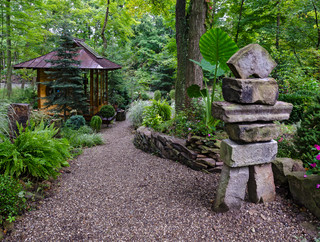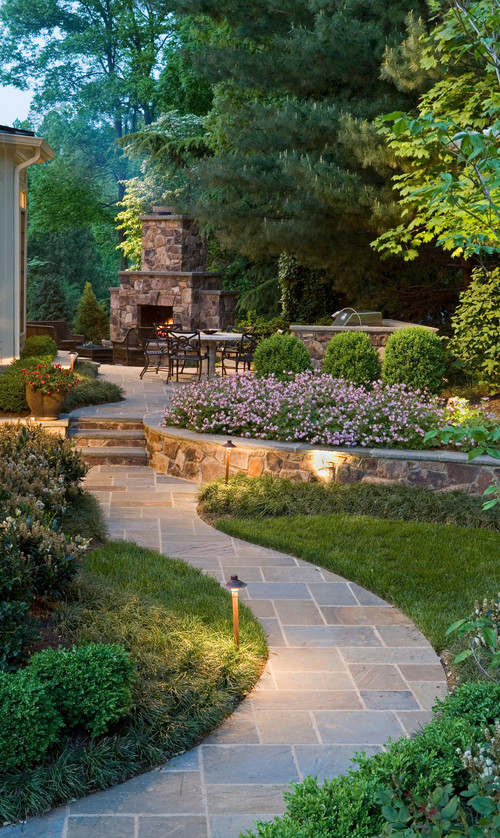Due to the fact that consuming organic foods is gaining popularity, choosing to live a holistic lifestyle is also becoming more prevalent. Many people who appreciate the benefits of this lifestyle enjoy growing their own foods using safe, organic gardening methods. Read up on some great organic tips below.
Plant perennials that are slug-proof. If slugs or snails find their favorite perennials in your garden, they'll snack all night. When you wake up in the morning, there will be very little left of your plants. Snails and slugs like to eat perennials with smooth and thin leaves, especially if they are young plants. There are, however, certain types of perennials that slugs and snails hate. Most of these varieties either have tough leaves or taste unappealing. Some of examples of these are achillea, heuchera, campanula, helleborus, and euphorbia.
Mediterranean Landscape by Encinitas Landscape Architects & Landscape Designers debora carl landscape design
Plan your garden before you plant it. This way, when the sprouts start shooting up, you can recall where you planted each plant. It can also keep you from planting any of your garden favorites too close to each other.If your garden requires a lot of low work, then save yourself some strain by investing in knee pads. Excessive time spent kneeling often results in significant stiffness and pain. Having a pair of excellent knee pads for gardening can help cushion the knees to provide additional comfort.
See to it that you fertilize your garden. One type of fertilizer that really helps plants grow is manure, but be sure to utilize a type that is commercially composted to reduce the chances of pathogens. There are a number of options for fertilizer, but the truth is that what you use is unimportant; you just have to remember to use something.
Learn the best harvest time for each vegetable. Each veggie has its own prime time for harvesting. Harvesting zucchini is best done when they are small and baby peas should be harvested when they are young. Tomatoes, though, are tastiest when they have been allowed to ripen on the vine as long as possible. Remember that the vegetables will taste best if you harvest them at the proper time.
You need to be smart when it comes to watering your garden. You can save time by using soaker hoses when watering plants. By doing this, you won't need to water your plants individually. To avoid damaging delicate plants, you should water them with low pressure. You can go about your business and leave your soaker hose at work for an hour or two.
Plant your seeds carefully, taking your time. The first thing you should do before planting is moisturize the soil. Take the seeds and place them evenly across the gardening area, giving them plenty of space to grow. Multiply the size of each seed by three and bury the seed that deep. Read the seed pack as some varieties shouldn't be covered with soil because they require light to sprout.
Get more profits from your property. Landscaping can make the value of your property go up. Certain plants could increase the value by 20%. Try to find plants that are relatively low-moisture plants, suited well to your particular environment. This will add a lot of value to your property.
When it is harvest time, use a laundry basket. The laundry basket will function as a makeshift strainer for the fruits and vegetables. Just rinse the produce right in the basket; the water will drain through the holes.
Killing weeds the natural way? Take layers of newspapers and use them for weed control. Weeds can only grow in sunlight. They will suffocate and die if you cover them with newpapers. It's easy for newspapers to break down over an extended period of time, making them great for compost. Of course, you may wish to cover the paper with mulch to make it appear more attractive.
For the best results when growing an organic garden, you should shake your seeds up a little bit. After planted, make sure you agitate the seeds at least twice daily, using your fingers or even a Popsicle stick. While it seems a little odd, it has been reported that this can encourage plant growth.
As you pick up more tips, acquire new techniques, and learn more in general about organic gardening, you will find organic gardening becoming easier for you. Keep in mind that the advice you've read is only the beginning.

